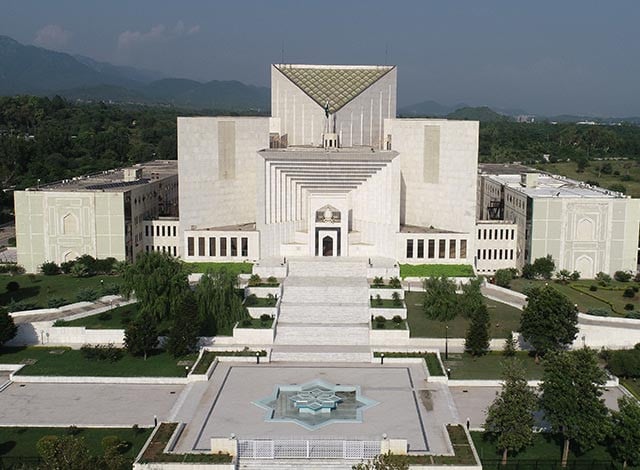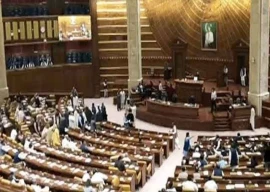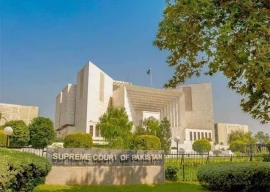
The Supreme Court was moved on Monday to establish an inquiry commission comprising three top court judges to investigate the contents and context of a letter written six sitting justices of the Islamabad High Court (IHC) regarding the alleged interference of intelligence agencies in judicial matters and surveillance of judges' residences.
Advocate Khudayar Mohla, former president of the Press Association of the Supreme Court (PAS), has invoked the jurisdiction of the apex court under Article 184 (3) of the Constitution.
Filing the petition through his counsel Dr GM Chaudhry, Mohla named the federal government, including the prime minister, secretaries of the cabinet division, ministry of law and justice, and ministry of interior, as respondents in the case.
The move comes ahead of a crucial hearing scheduled for April 30, where a six-member larger bench led by Chief Justice of Pakistan (CJP) Qazi Faez is set to deliberate on the matter.
In his plea to the SC for redressal in the case, Khudayar Mohla urged for a commission to conduct a thorough investigation into the letter, and “to fix responsibility of persons in their official status who had indulged in interfering judicial working of the said learned judges to close backdoor of interference by any executive authority or intelligence agency, etc., in the interest of justice and independence of the judiciary”.
Citing suo motu action regarding the Islamabad-Rawalpindi dharna verdict, the petitioner sought the court directives to all the respondents for immediate enactment of a law defining and prescribing powers, functions and duties of officials and officers of the intelligence agencies within a stipulated timeframe under intimation to the top court.
He emphasised the principle of equality before the law, stressing the crucial necessity to hold accountable any official found to have engaged in wrongdoing under constitutional provisions.
Citing a ruling by the SC to bolster his argument, Advocate Mohla appealed for directives from the apex court to the respondents to initiate the enactment of a law pursuant to Article 212(1)(b) of the Constitution. This law would address tortious acts or illegal omissions, ensuring punishments and compensations for aggrieved citizens of Pakistan.
The petitioner also requested directives to be issued to the respondents, urging them to establish appropriate rules and regulations. This would prevent the continuation of existing customs and norms among public servants in certain departments who perform their duties in arbitrary manners.
Such practices, often enforced through office memorandums, letters, or instructions, hold no legal validity and need to be rectified, he added.














1710998259-0/pti-(1)1710998259-0-270x192.webp)











1716141490-0/image-(28)1716141490-0-270x192.webp)









COMMENTS
Comments are moderated and generally will be posted if they are on-topic and not abusive.
For more information, please see our Comments FAQ